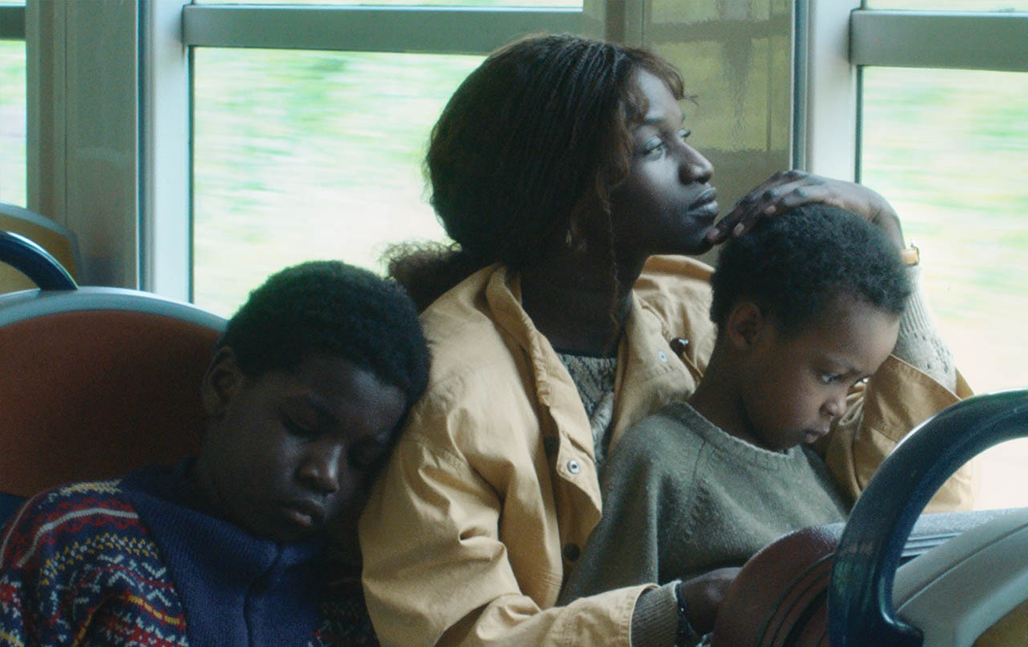
Léonor Serraille examines the (de)construction of a family in Un Petit Frère (Mother and Son)

Rose, from the Ivory Coast, arrives in France and moves to the Paris suburbs with her two sons, Jean and Ernest. After Jeune Femme (Montparnasse Bienvenue), her first feature film that crowned Laetitia Dosch with the Caméra d’or Award in 2017, Léonor Serraille's Un Petit Frère (Mother and Son) tells of the construction and deconstruction of a family, from the end of the 1980s to today.
What gave you the idea to make this film?
I've often thought of writing about the life of the father of my children. I've always been touched by certain aspects linked to his coming to France as a child. There were also ties to my feelings as a mother, and questions that I've asked myself about my own family. The screenplay was written with what felt to be a sudden need. This story was starting to get entangled in my head, so I had to step outside myself in order to examine and understand it.
What did you wish to convey ?
I wanted to get as close as possible to a trio of characters through an exploration in which I was kind of feeling my way along. While writing, I realized that the journey of Rose, Jean, and Ernest could equally be seen as an open book into which anyone could be projected. It's a film that examines the concept of family, what it allows us, what it takes from us, what it transmits or doesn't transmit. There's a desire to understand certain states of mind: the power and need to live intensely upon arriving in France, but also the loneliness and difficulties linked to feeling legitimate. I wanted to pose questions more than just tell a story.
You address the question of what it means to be Sub-Saharan in France today…
In the book Afropea: Utopie post-occidentale et post-raciste (Afropea: Post-Occidental and Post-Racist Utopia), Léonora Miano writes, "identity is not within one's color, but within one's life experience". These issues are more relevant than ever since we're living in a tense period, in which people are closing themselves off and rejecting each other. It is necessary to reflect on what we can do for the future.
“We wanted to traverse different periods in time without having to make three films.”
What were your visual precepts?
We wanted to traverse different periods in time without having to make three films. Hélène Louvart, my director of photography, knew how to provide the most organic framework possible for each time period. I felt like we had a lot of freedom to invent each instant, and this is what I strive for on the set: a space for exploring, where nothing is fixed. Since the film covers quite a few years, it was important not to be afraid of varying the pace and artistic devices used in order to keep the film from getting bogged down, to keep it fresh and dynamic.
How did the shooting go?
We filmed for nine weeks, and it was really intense. Apart from a handful of scenes, we were able to follow the screenplay in a fairly chronological manner, and this was crucial since the crew and the actors were able to help us extract the essence of each scene according to what had been filmed previously.
Could you tell us a little bit about the casting?
With Youna de Peretti as casting director, we wanted first to find the mother, and Annabelle Lengronne's name came up as the obvious choice since she has great sensitivity. She is incredibly expressive and can convey much without artifice. Stéphane Bak was also an obvious choice due to his strong presence, his involvement, and his concern never to betray anything. I had the impression that he was able to grasp something deep inside, a restraint along with a way of letting go at the same time. Ahmed Sylla was in a slightly different register than usual. Meeting him was a very nice surprise. He provided a special sparkle and tone to his character.


